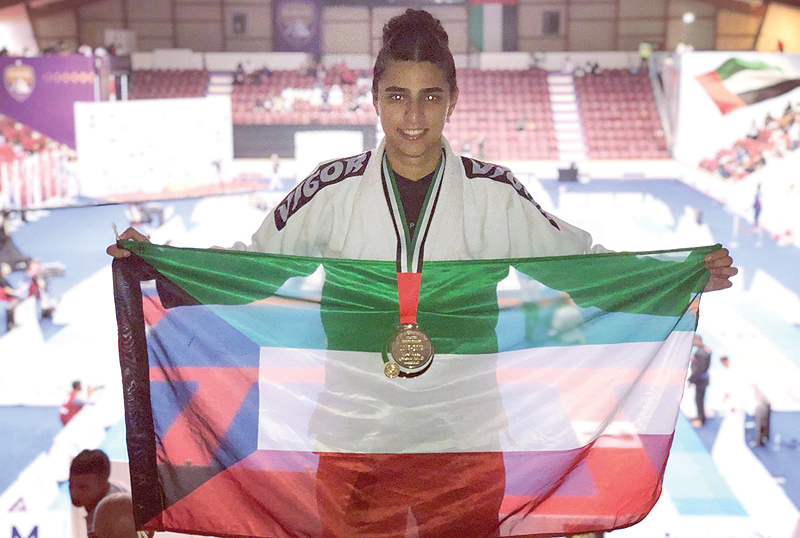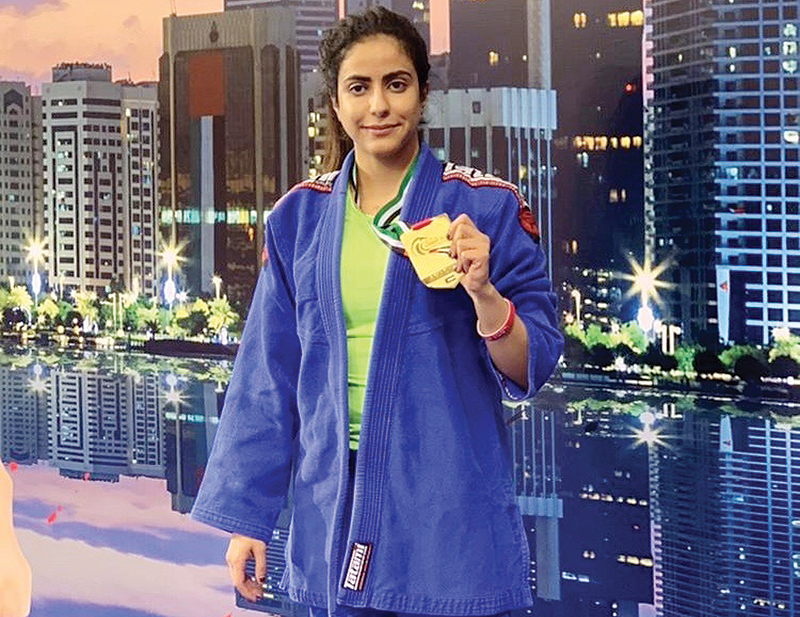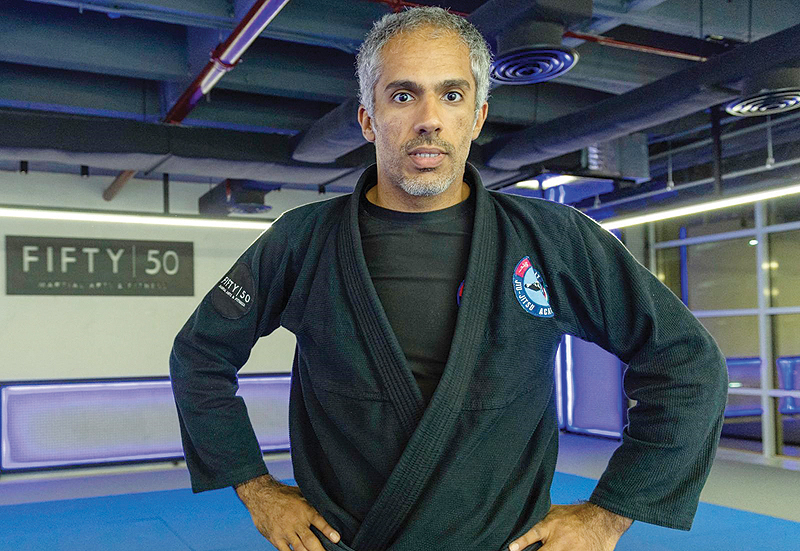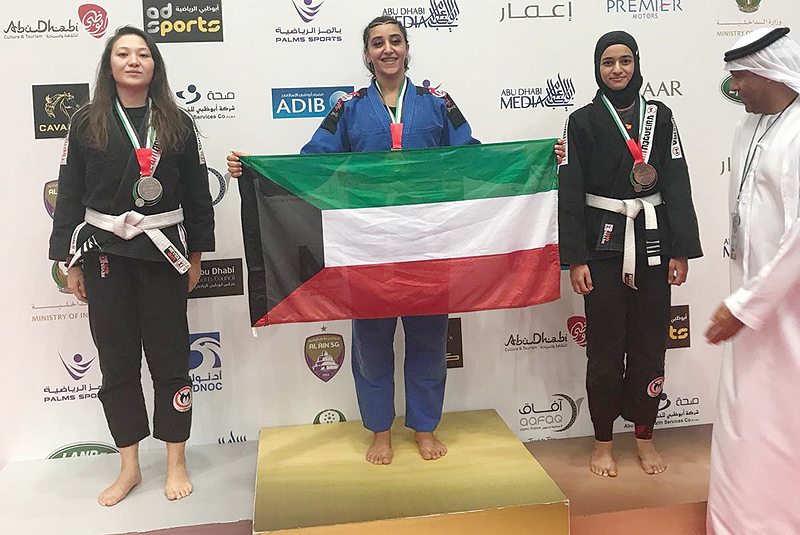Jiu-Jitsu in the country has a bright future

KUWAIT: Brazilian Jiu-Jitsu, or BJJ, has been gaining traction amongst female martial artists in Kuwait due to its effectiveness and global appeal. Like their male peers, Kuwaiti women have put in the legwork to compete in BJJ's regional and international tournaments, gaining recognition for their skills and prowess. Speaking to KUNA, a number of BJJ top figures and practitioners as well as other martial artists and professionals highlighted Kuwaiti female martial artist's achievements in the region and the world, stressing that Jiu-Jitsu in the country has a bright future. Fouzan Al-Sabej, a Kuwait jiu-Jitsu-/Brasa certified Black Belt, told KUNA BJJ emphasized the grappling aspect of martial arts, subduing the opponent via chokeholds or limb-breaking techniques through minimal usage of the body's energy.

Since 2004, Al-Sabej has been competing in global tournaments such as the Abu Dhabi World Professional Jiu-Jitsu Championship, winning two bronze medals, two gold in the Asian tournament, and two other gold medals in the Arab BJJ tournament. Al-Sabej, who teaches BJJ to anyone willing to learn, said that an increasing number of females were seeking Jiu-Jitsu in Kuwait. He indicated one of the prominent BJJ female practitioners in Kuwait was MMA fighter Seham Al-Kharyef, who uses BJJ as one of many weapons in her arsenal including kickboxing and Kyokushin Karate. On her part, Al-Kharyef-fighting of Vikings MMA Gym-stressed that BJJ was an integral part of her MMA training, which requires her to be very intelligent when taken to the ground or vice versa.BJJ has no requirements other than dedication to training and confidence, affirmed Al-Kharyef who started BJJ just a few months ago and participated in 2018 the UAE's Al-Ain and Fujairah Jiu-Jitsu tournaments snatching gold on both occasions. Also speaking enthusiastically about Jiu-Jitsu, practitioner Sarah Al-Adwani said that she began practicing BJJ when she was 12 years-old. She affirmed that Jiu-Jitsu gave her confidence and enabled her to excel in the 2018 Abu Dhabi Grand Slam Jiu-Jitsu World Tour and the national "Kimura" challenge, winning gold in both tournaments. Amna Al-Saeed, a fellow BJJ practitioner under Jiu-Jitsu Black Belt and head of Absoluto Team Professor Remus Corbei, said that she had a similar experience through her participation in numerous tournaments including the 2019 Abu Dhabi Grand Slam, 2018 Al-Ain tournament, and the Kimura challenge, winning gold and silver medals.

Regarding the challenges facing BJJ, contrary to other countries in the region, Jiu-Jitsu in Kuwait lacked funding for practitioners who have to pay from their own pockets to take part in international tournaments, revealed Al-Saeedi who suffered a minor injury hindering her from currently competing. Providing an overall perspective on women BJJ in Kuwait, Jiu-Jitsu trainer Qassem Al-Aryan applauded the increasing interest in the martial arts especially on part of women. He affirmed that BJJ female practitioners began to rival their male counterparts, predicting a promising future for this particular martial arts. While many might have a confused idea of what BJJ is really about, Karatekas Ali and Mohammad Al-Mousai provided their valuable input on the matter.BJJ is a grappling based martial arts, which has some striking techniques taught for self-defense, however, it is unlike Karate, which emphasizes striking techniques, the Karate instructors said.

They added that BJJ practitioners, seeking to improve their grappling skills, might do via cross training with other grappling based arts like wrestling, Judo, or others. On the other hand, the two commended Kuwaiti women's increasing interest in the martial arts, saying that their BJJ enthusiasm was a positive thing. Speaking from a medical perspective, physical therapist Dr. Ali Al-Attar said that injures varied from sport to sport, but indicated from his experience that females tend to recover faster than their male counterparts; however, this all depended on the methods of recovery and eagerness to overcome obstacles. Brazilian Jiu-Jitsu has its roots in Japanese Kodokan judo's ground techniques referred to as "newaza". It was developed by various Brazilian martial artists, namely the Gracie family, who had popularized the martial art through no holds barred contests in Brazil, the US and elsewhere.BJJ was brought to Kuwait in 1999 by Professor Ahmad Al-Houli who formed the first jiu-jitsu school in Kuwait. - KUNA










